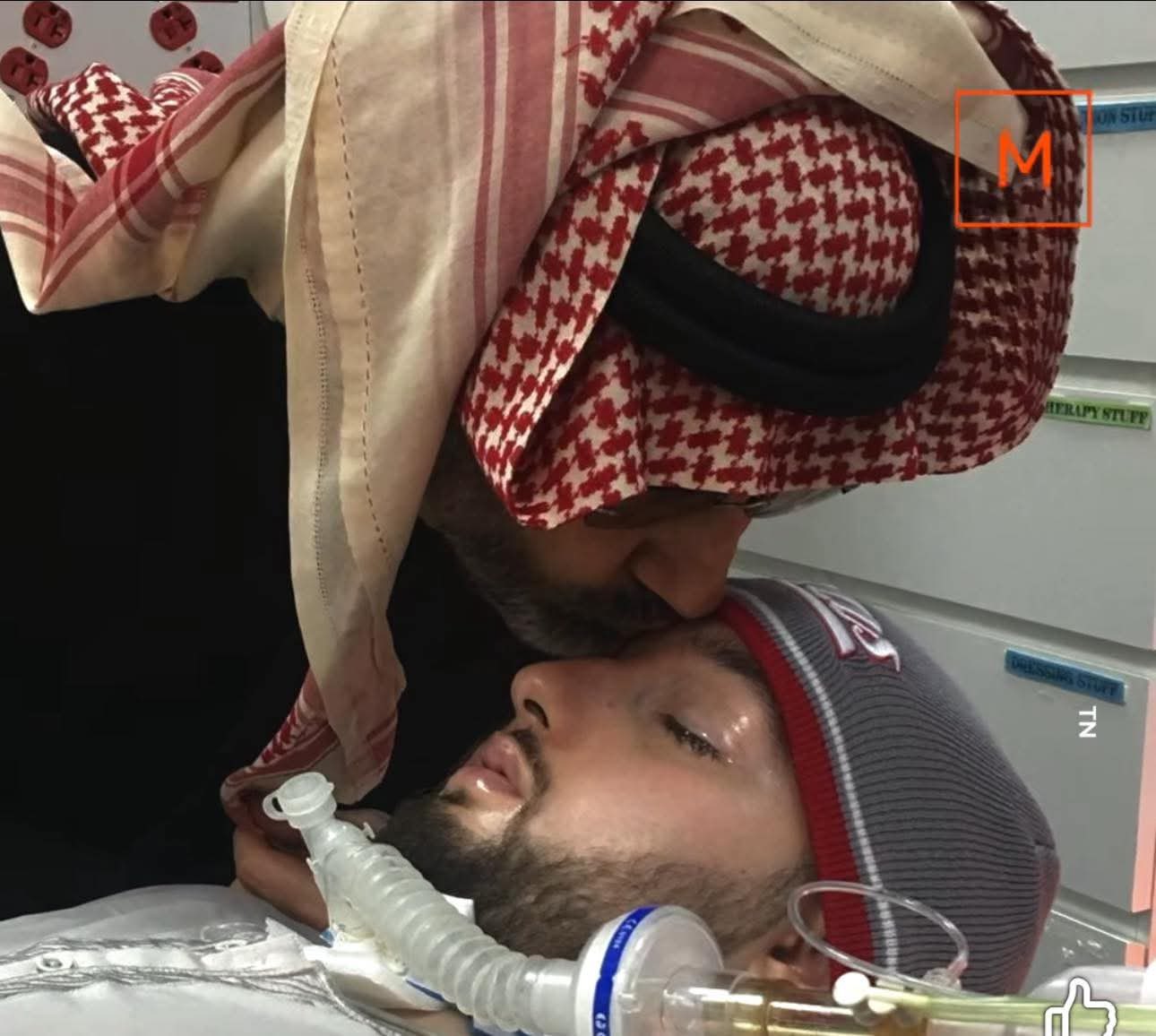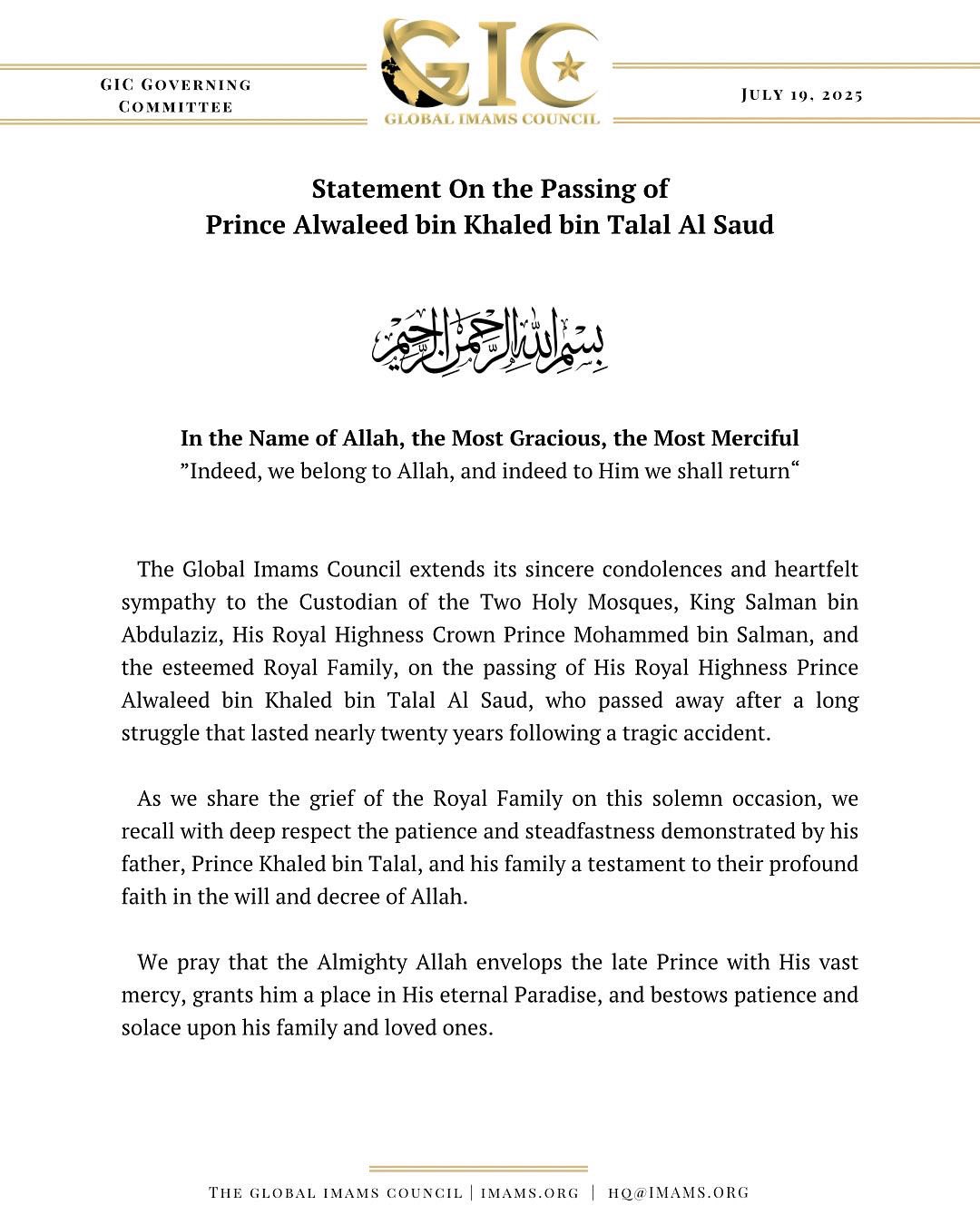Prince Alwaleed bin Khaled bin Talal Al Saud, who became a symbol of unwavering hope for two decades after suffering a catastrophic brain injury in a road accident, passed away on Saturday at the age of 36.
Known to many as Saudi Arabia’s ‘Sleeping Prince’, Alwaleed remained in a coma for nearly 20 years following a devastating car crash in London in 2005. He was then just 15, a military student in the United Kingdom, when the accident caused severe internal bleeding and irreversible brain damage.
Despite receiving expert care from both American and Spanish doctors, and years of treatment in Riyadh’s King Abdulaziz Medical City, he never regained full consciousness. Occasional video footage that appeared over the years, showing slight finger movements, stirred hope among well-wishers but ultimately offered no recovery.

His father, Prince Khaled bin Talal Al Saud, never withdrew life support, holding firmly to the belief that “only God determines the moment of death.” The Prince remained resolute in his conviction despite public debate over Alwaleed’s prolonged condition.
On Saturday, Prince Khaled issued a statement expressing his sorrow, “With hearts full of faith in Allah's decree and destiny, and with profound sadness and sorrow, we mourn our beloved son Prince Al-Waleed bin Khaled bin Talal bin Abdulaziz Al Saud, may Allah have mercy on him, who passed away to Allah's mercy today.”
The Global Imams Council also extended its condolences to Crown Prince Mohammed bin Salman and the House of Saud, calling Alwaleed’s death a profound loss after a “long struggle that lasted nearly twenty years following a tragic accident.”

Born in April 1990, Prince Alwaleed was the eldest son of Prince Khaled bin Talal Al Saud and a nephew of billionaire businessman Prince Alwaleed bin Talal. Funeral prayers will be held on Sunday, 20 July, following the Asr prayer, at the Imam Turki bin Abdullah Mosque in Riyadh.
Alwaleed’s story, spanning two decades of silence and spiritual perseverance, became etched in public consciousness as a poignant symbol of human fragility and paternal hope.
Also read: Anti-ageing jab may have triggered Jariwala’s cardiac arrest




